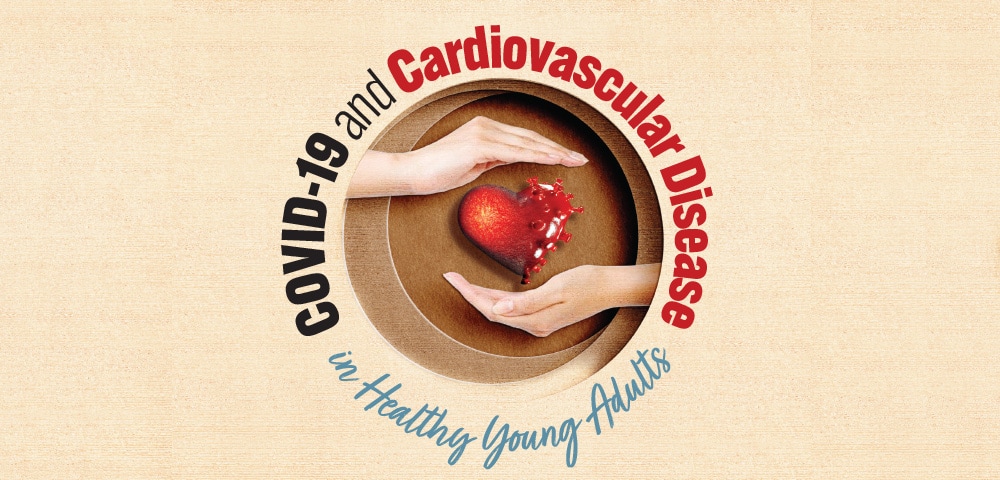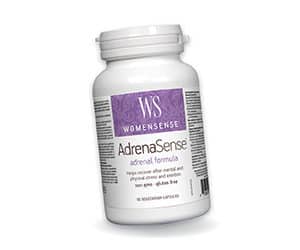
Data from the Smidt Heart Institute at Cedars-Sinai found that deaths from heart attacks rose significantly during the COVID-19 pandemic, reversing a downward pre-pandemic trend.
The age group hit the hardest was people between 25 and 44, who saw a 29.9% increase in heart attack deaths over the first two years – 30% higher than the predicted number. Adults between 45 and 64 saw a 19.6% relative increase, and adults 65 and older saw a 13.7% relative increase.
Demi Washington, a Vanderbilt University School of Medicine basketball player, got COVID-19 in late 2020, pre-vaccine. Demi’s symptoms were mild, and she felt no indications or signs that her heart was inflamed, nor did she have a genetic predisposition. Before she could resume playing, the university required her to undergo an MRI, which showed she had myocarditis (inflammation of the heart) that a virus can trigger. It usually resolves as the infection wanes but sometimes can cause arrhythmias, heart failure, cardiac arrest, and sudden death.
Unfortunately, similar stories of young people, particularly healthy athletes experiencing stroke or heart attacks, have become more common since the pandemic. Demi has since recovered and is back to playing ball. However, this experience sheds light on the thousands of young adults infected with COVID-19 whose health did not rebound as successfully.
“Young people are obviously not really supposed to die of heart attack.”
– Dr. Susan Cheng, study co-author
BREAKING NEWS February 2023 — The Lancet medical journal published the results of a meta-analysis of the scientific literature on COVID-19, which showed immunity from a past SARS-CoV-2 infection is as protective as vaccination against severe illness and death. More on this groundbreaking review in the next volume of Women’s Voice.
The Question is Why
Why is this happening more often in healthy young people?
There are various possibilities based on current data, including:
- The body’s immune system causes inflammation in the heart and blood vessels in response to an infection or other triggers.
- SARS-CoV-2 virus and certain strains of influenza can damage the heart’s muscle directly, which decreases the heart’s ability to pump blood, often leading to stroke or heart attack.
- SARS-CoV-2 also increases the viscosity (stickiness) of the blood, and this, combined with inflammation in the blood vessels, increases the likelihood of blood clots, stroke, and heart attack.
- In some people, this normal defensive immune inflammatory response is exaggerated, resulting in inflammation that can destroy healthy tissue and damage organs such as the heart, kidneys, and lungs.
- When it comes to younger people, they generally have a more robust immune response, which can also lead to a heightened inflammatory response to the viral infection.
“This is not even just like the flu… This virus is still very different from any other virus we have seen in our lifetime.” – Dr. Susan Cheng
According to The Journal of the American Medical Association (JAMA), data suggests that even 30 days post a COVID-19 infection, people are still at an increased risk for cardiovascular disease (CVD), including pericarditis, myocarditis, heart failure, thrombo-embolic disorders, and more. The results of this study show that the risk can last up to one year.
So, other than not getting COVID-19, which seems very rare at this point, what can a person do to protect blood vessels and the heart from increased inflammation?
Omega-3 Fatty Acids are some of the best supplements for circulation and have been shown to:
- Encourage the release of nitric oxide, which relaxes blood vessels, allowing more blood to flow through them
- Have anti-inflammatory properties, which encourage proper dilation and reduce the risk of CVD
- Prevent “sticky blood” and reduce the risk of blood clots
Vitamin K2 activates proteins that bind to calcium, moving it out of the soft tissues, including the arteries. This helps keep blood vessels flexible and open for better circulation. Studies have shown that vitamin K2 is linked not only with reductions
in arterial calcification but also with a lower risk of death from CVD.
Antioxidants Reduce Oxidative Stress and Inflammation
When the production of free radicals (unstable atoms that damage cells) outpaces the body’s level of antioxidants, it causes oxidative stress, which damages cells and tissues. The immune system responds by initiating an inflammatory response that can result in chronic inflammation. By reducing oxidative stress in the endothelium (lining of heart and blood vessels), antioxidants help prevent and reduce inflammation.
The best antioxidants for circulatory health include:
Turmeric/curcumin is widely recognized as one of nature’s most powerful anti-inflammatories. It also reduces platelet aggregation and promotes nitric oxide release, making it great for blood flow. Absorption of turmeric is notoriously poor, so make sure you get a product with enhanced bioavailability, such as Theracurmin®.
Resveratrol In addition to countering oxidative stress and inflammation in the blood vessels, resveratrol also improves blood flow and reduces excessive clotting.
Grape seed extract and pycnogenol are also known to enhance blood vessel health and improve circulation.
Water is critically important to prevent increased blood viscosity, in addition to following a healthy lifestyle such as the Mediterranean diet and regular exercise.














